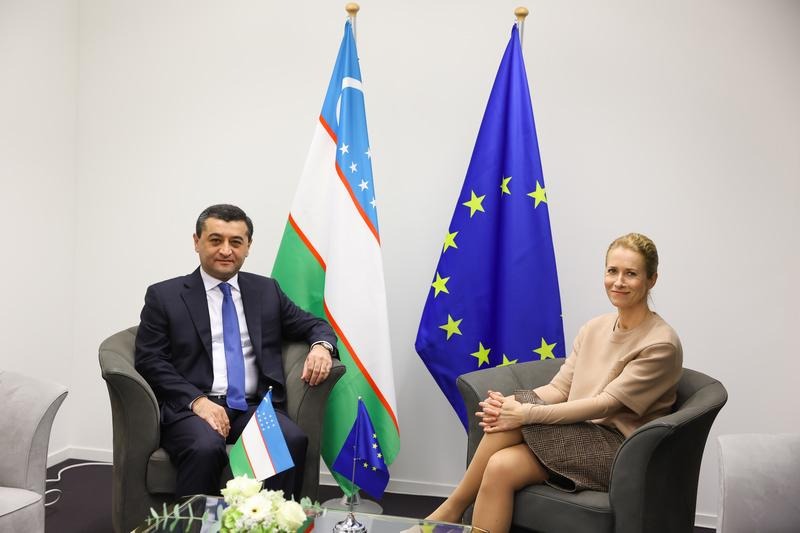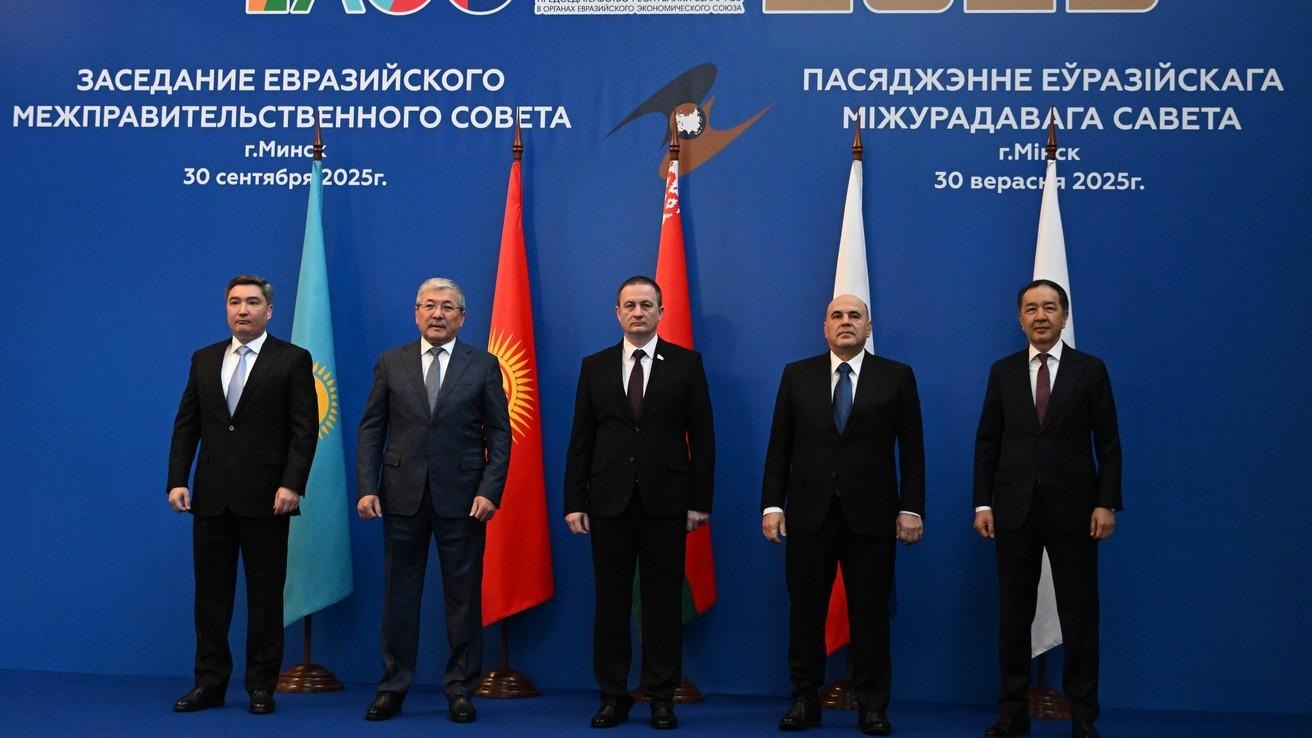
Moldova-Ukraine Energy Deal Upsets Russia by Cutting Transnistria Out
Moldova-Ukraine Energy Deal Upsets Russia by Cutting Transnistria Out
Ukraine’s DTEK Trading, owned by Rinat Akhmetov, and Moldova’s state-owned intermediary Energocom signed a one-year contract, on April 1, for the supply of electricity to Moldovan distributors. Energocom/DTEK’s only competitor was the Kuchurgan Power Station, which is located in Transnistria and belongs to the Russian state-owned electricity giant Inter RAO. According to Moldova’s Ministry of Economy, the winning bid offered to sell power at $50.20 per megawatt/hour (MWh), compared to Kuchurgan’s offer of $54.40 per MWh (MEC.gov.md, April 1). However, questions remain as to why DTEK had to go through the Moldovan intermediary and did not submit a bid directly. Moreover, there are concerns about DTEK’s capacity to cover Moldova’s energy needs in full (Exprt-Grup.org, March 31). The arrest of the deputy minister of economy in charge of the energy portfolio on the day of the auction deadline added further intrigue, despite, so far, corruption charges not being connected to the bidding process. Speculation mounted as the auction deadline was extended repeatedly without a clear justification. Nonetheless, the fact that Moldova switched from the Russian supplier in Transnistria to a Ukrainian company is significant in ways that go far beyond market economics.
The decision took many by surprise, as the key figure in Moldovan politics—the head of the ruling Democratic Party, oligarch Vlad Plahotniuc—had a vested interest in maintaining the old contract despite accusations that importing energy from Transnistria not only legitimates, but also, in effect, sponsors separatism. Moldovan independent experts as well as politicians accused Plahotniuc of benefiting from the shell-company that had served as a middleman between Moldova and Kuchurgan Power Station since January 2015 (Adevarul.ro, April 1). The Tiraspol-based offshore-owned intermediary Energokapital (second-largest taxpayer in Transnistria) is considered the brainchild of Transnistria’s former leader Yevghenii Shevchyk and Moldovan leaders Vlad Filat and Plahotniuc (Ecfr.eu, July 7, 2016; Jurnal.md, July 24, 2016). Maintaining the existing deal was Plahotniuc’s preferred option following Filat’s arrest; but the status quo did not sit well with either Ukraine or Moldova’s Western partners.
Having lost control over its large coal mines in the east (see EDM, February 28, March 29), Ukraine is eager to compensate as much as it can by exporting power generated by its nuclear power stations. DTEK Trading bought the export rights from Energoatom—a Ukrainian state enterprise that operates the country’s four nuclear power stations. Coincidentally or not, the day before the deadline of Moldova’s energy import auction, the Washington Times featured a piece titled “Ukrainian Corruption Casts Nuclear Pall Over Europe,” stoking fears about Ukraine’s alleged inability to ensure the safe operation of its nuclear facilities (Washington Times, March 30). The article leans in favor of Russia. Of course, Ukraine had long sought to replace Russia on the Moldovan energy market, but to date, Chisinau had only used this as leverage with Moscow and Tiraspol. Moreover, the lucrative kickbacks from Energokapital (about $19 million a year) were likely difficult to pass up (Jurnal.md, July 24, 2016). Yet, several factors had been making it increasingly difficult for the Moldovan government to continue with business as usual. For one, Transnistria does not pay Russia back for the Russian natural gas it consumes to produce electricity, passing the debt onto Moldova. Second, the Russian aggression in Ukraine had alarmed the small country with a separatist region. And, last but certainly not least, the election of a pro-Russian president has compelled Moldova’s government to forgo “business as usual” in order to mollify pro-Western Moldovans and the country’s development partners.
It remains unclear why Kuchurgan decided to submit a price higher than the $49 per MWh they had been charging last year. Given that the intermediary Energokapital was no longer in the picture, the price should have been lower still. Yet, the bigger question now is what Transnistria does with its energy surplus. In 2005–2009, when Moldova had a contract with Ukraine and not Inter RAO, Transnistria was able to sell part of the electricity generated by the Kuchurgan Power Station to Romania. Currently, Romania is unlikely to help Tiraspol out and neither is Ukraine. Losing such a significant revenue stream puts incredible pressure on an already austere Transnistrian budget. Spending cuts in Russia will also make it difficult for Moscow to pick up the tab (see EDM, June 29, 2015). Therefore, Moldova’s decision has even larger geopolitical implications.
Due to increased domestic contestation by the opposition, Plahotniuc has been trying desperately to boost his legitimacy by proving himself to the West, yet without antagonizing Russia directly. The Moldovan leadership has gone to great lengths to avoid linking the Russian government to the actions of its intelligence services. This is despite accusations of Russian special services harassing Moldovan officials traveling to Russia, their sabotage of a Moldovan law enforcement investigations into a major transnational money laundering scheme, and the recruitment of a former Moldovan Democratic Party legislator as a spy for Moscow (Adevarul.ro, March 9). But following the election of a pro-Russian president in Moldova, Moscow is now focused on ensuring that pro-Russian forces secure a majority in Moldova’s next parliamentary elections, scheduled for 2018. Consequently, Russia has diminished its space for maneuver. It cannot retaliate against Moldova without undermining the chances of the pro-Russian parties in the next election. Vladimir Putin recently made President Igor Dodon several token concessions regarding Moldovan exports and labor migrants. Dodon is also creating expectations about progress in the Transnistrian conflict settlement (see EDM, January 26). If the Kremlin were to retaliate on any of these fronts, it would undermine its own political projects in Moldova.
The politically agile Plahotniuc may have hoped to persuade the European Union that cutting Transnistria out of the energy deal would be detrimental to the conflict settlement process, but Plahotniuc has lost the battle, even while saving face for now. Clearly, the deal is a major win for Ukraine. Apart from the much-needed cash inflow and a snub at Russia, Ukraine is also hoping to access the EU energy market via Moldova. The new contract may ultimately prove to be a big win for Moldova if DTEK is able to ensure supply and price stability, since Plahotniuc is likely to use any hitches as a pretext to go back to his preferred option. In light of the difficult economic conditions in Transnistria and Russia’s increasingly limited leverage over Moldova, there is some hope that pressure for a positive development in the conflict settlement may emerge at the grass roots level to the point when it can no longer be ignored or stifled by the authorities.


